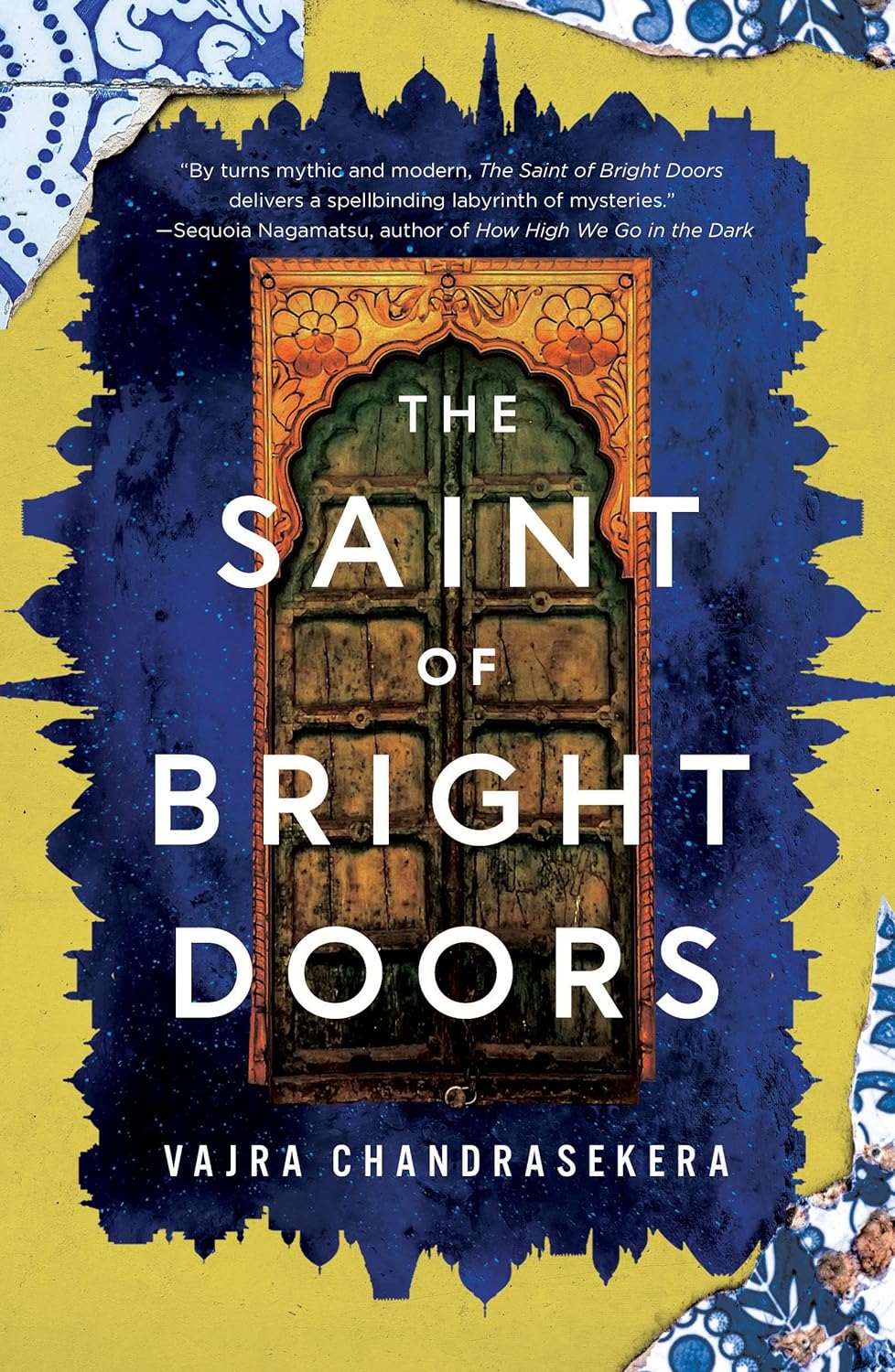sol2070 reviewed The Saint of Bright Doors by Vajra Chandrasekera
Strange, mythical, captivating
4 stars
( em português → sol2070.in/2025/06/livro-the-saint-of-bright-doors/ )
A strange, mythical, and captivating novel: The Saint of Bright Doors (2023), by Sri Lankan author Vajra Chandrasekera, winner of the 2024 Nebula Award—one of the most important awards in speculative fiction.
Strange, perhaps, because it comes from another culture. In Buddhist Sri Lanka, it may not have sounded so exotic, despite its heresy against the dominant religion. Classified as fantasy and full of magical realism, it is a queer Oedipal saga where legends are reality.
We follow Fetter from childhood, when his pagan mother eliminates his shadow and trains him to commit all five of the most serious religious crimes, including murdering saints and even his mother and father.
It is necessary to situate the book to understand it better. The Buddhist religion is often seen in the West with an aura of greater coherence, critical practical spirit, and pacifism. But in countries …
( em português → sol2070.in/2025/06/livro-the-saint-of-bright-doors/ )
A strange, mythical, and captivating novel: The Saint of Bright Doors (2023), by Sri Lankan author Vajra Chandrasekera, winner of the 2024 Nebula Award—one of the most important awards in speculative fiction.
Strange, perhaps, because it comes from another culture. In Buddhist Sri Lanka, it may not have sounded so exotic, despite its heresy against the dominant religion. Classified as fantasy and full of magical realism, it is a queer Oedipal saga where legends are reality.
We follow Fetter from childhood, when his pagan mother eliminates his shadow and trains him to commit all five of the most serious religious crimes, including murdering saints and even his mother and father.
It is necessary to situate the book to understand it better. The Buddhist religion is often seen in the West with an aura of greater coherence, critical practical spirit, and pacifism. But in countries such as Sri Lanka, which is predominantly Buddhist, religious institutions seem no better than those we know well, with their corruption, political promiscuity, and neglect of multiple forms of violence. In some respects, they seem even worse, as they brutally contradict what they preach, given the culturally and religiously motivated massacres that have been devastating the country.
Vajra transports this apocalyptic spiritual context to a magical world with levitating saints, magic doors, revolutionary movements, demons, and “enlightened” beings—without discarding smartphones and online surveillance—as if all religious and folkloric mythology were part of consensual reality.
Just as Western stories rebel against involuntary Christian indoctrination in education, the author does so with Buddhism, although he does not name it.
The gay protagonist Fetter is the unrecognized heir of the “enlightened” one, a quasi-chosen one. He leaves his mother and ends up joining a support group for quasi-chosen ones, being drawn into a conspiracy to unravel the mystery of the bright doors and, with his special abilities, even helping to fight the religious-political tyranny.
Loaded with psychological archetypes, it reconciles the mythical with the mundane, as one critic said, the surreal with wisdom.
I just felt that, at times, it drags on in an exposition of scenarios that don't resonate, at least with me (who already has an above-average familiarity with the East and Buddhism).
However, there is a twist at the end that fully compensates for the less captivating passages, practically on the same level as the great immemorial myths.




